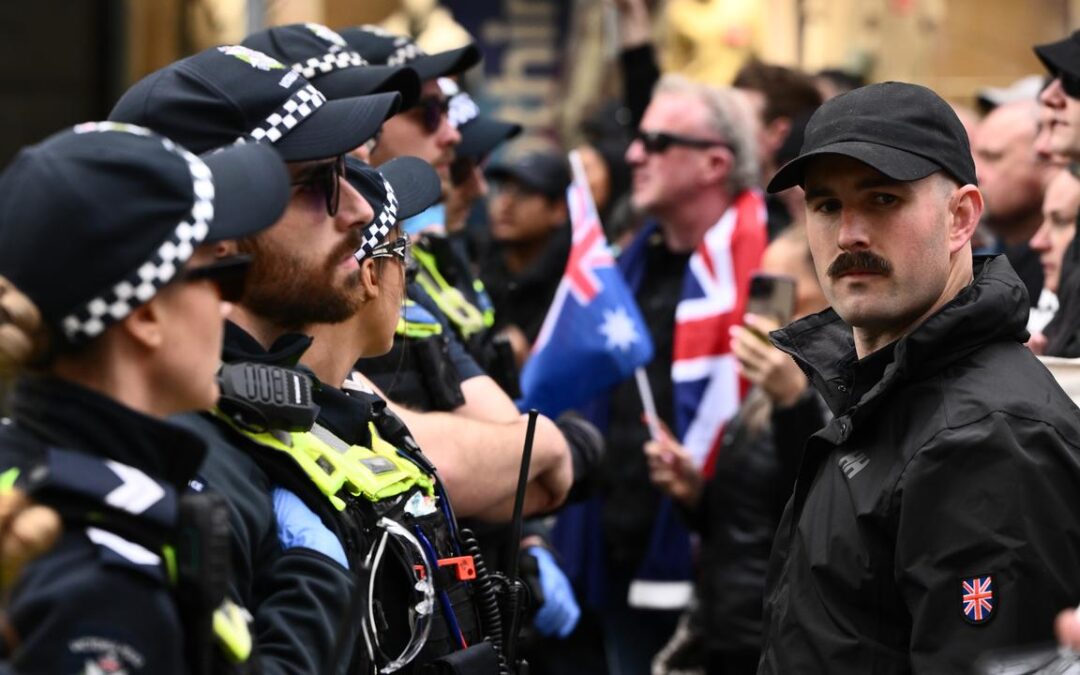
Far-right threat exposed by anti-immigration rallies
Australia has been urged to take the threat of far-right extremism seriously after nationalists marched alongside neo-Nazis at anti-immigration rallies.
Tens of thousands of people, dozens of dogs and at least one horse draped in Australian flags and paraphernalia joined the March For Australia rallies on Sunday in major cities including Sydney, Melbourne, Adelaide, Brisbane and Canberra.
Though the protests were widely condemned as racist and a “neo-Nazi con” across the political spectrum, politicians such as independent MP Bob Katter and One Nation senator Pauline Hanson spoke at some events.
Prime Minister Anthony Albanese maintained “diversity is a strength in modern Australia”.
“(It) provides us with incredible economic opportunity due to the diaspora and our connections with every country on the planet,” he told parliament on Monday.
But the Greens accused members of both major parties of paving the ideological path to the weekend’s rallies.
“Labor and Liberals for years have punched down on migrants and refugees,” Deputy Greens leader Mehreen Faruqi told the Senate.
“I do hope that this is a wake-up call for all of you to change course and do something about far-right extremism, which you have been ignoring.”
The minor party’s senators pointed to a Labor bill that would allow hundreds of former immigration detainees to be deported to Nauru, which the coalition has indicated it would support.
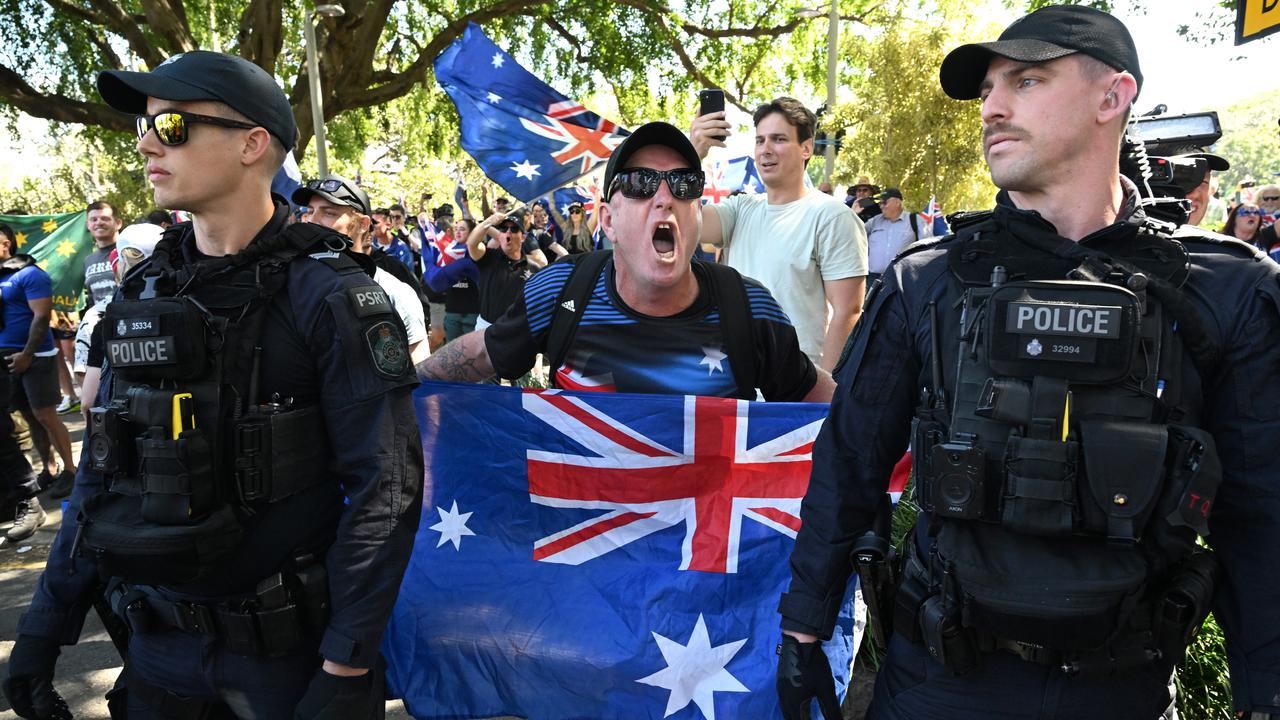
Prominent neo-Nazis gave speeches in Melbourne and Sydney, where NSW Police estimated 15,000 people attended.
Speakers and attendees were at pains to state they were not against immigrants and wanted the federal government to pause or slow the pace of immigration.
But in Sydney, one speaker sprouted a theory about “a clear global agenda to shame, beat down and replace people with Anglo-Celtic and European heritage”.
Multicultural Affairs Minister Anne Aly said people had legitimate concerns around the strains immigration was placing on housing and infrastructure.
The protests were clearly targeted at migrants from “countries that have brown people”, not white Western countries, Ms Aly said.
“It’s very clear from the conduct that was observed … that these marches were a con by the far right neo-Nazis to prey on some legitimate concerns around housing and around cost of living in order to propagate their anti-immigration, racist agenda,” she told ABC Radio on Monday.
“One of the very clear calls to action that was listed there was anti-Indian immigration.
“Now that, to me, is clearly racist when you target a specific ethnicity.”
Opposition Leader Sussan Ley claimed the weekend’s rallies were “attended by people of goodwill but hijacked by neo-Nazis spouting hate”.
“That can never be accepted,” she said.
There was some diversity of views within the coalition, with senator Jacinta Nampijinpa Price congratulating those who marched.
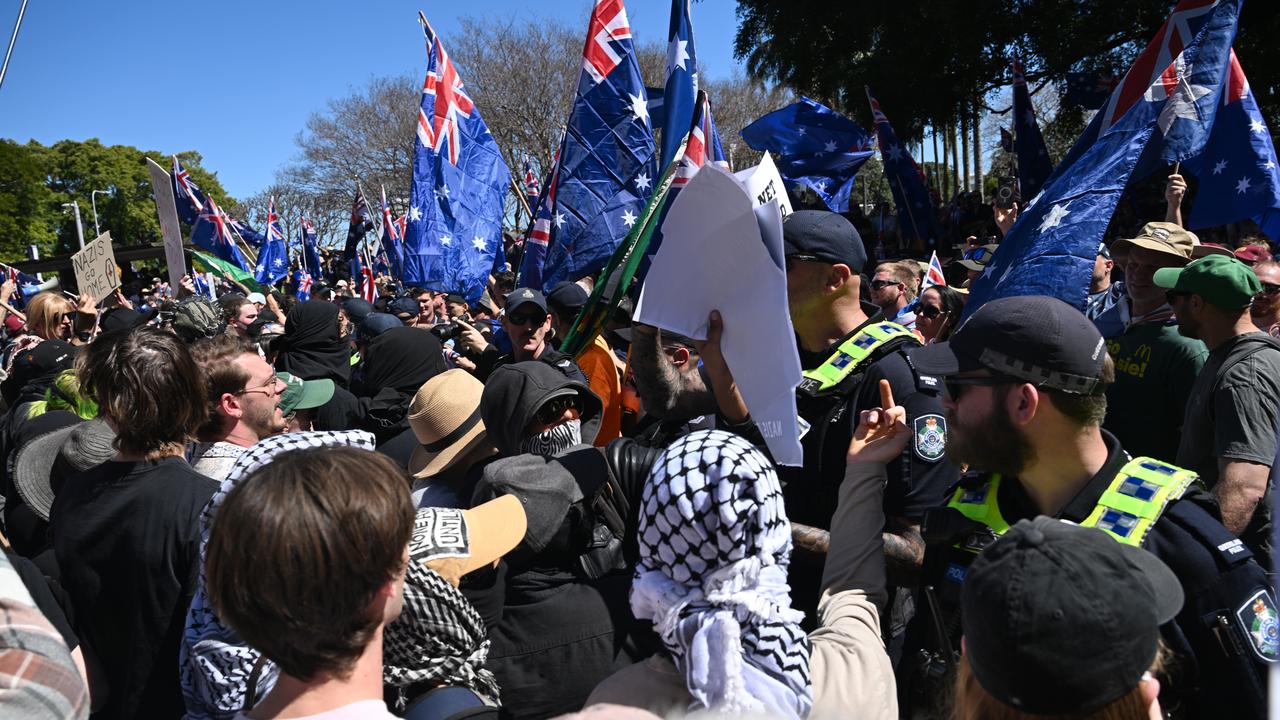
Before the protests, organisers frequently repeated a claim that 1500 migrants were entering Australia each day, based on Australian Bureau of Statistics overseas arrivals and departures data.
But the bureau has said the figures are not a reliable measure of migration or population change but rather represent self-declared traveller intentions.
Former Immigration Department deputy secretary Abul Rizvi said successive governments had failed to communicate their immigration plans to the public, leaving a void to be filled by conspiracy theories and “bizarre ideas”.
The crowd was generally well-behaved in Sydney, except for two men who were charged after an officer was assaulted during a brawl at a pub on the march route.
It was a different story in Melbourne, where violence erupted between anti-immigration marchers and anti-fascist and pro-Palestine protesters.
More than 100 Canberran counter-protesters chanted “f**k off Nazis, f**k off”, “go home white trash” and “immigrants are welcome here”.
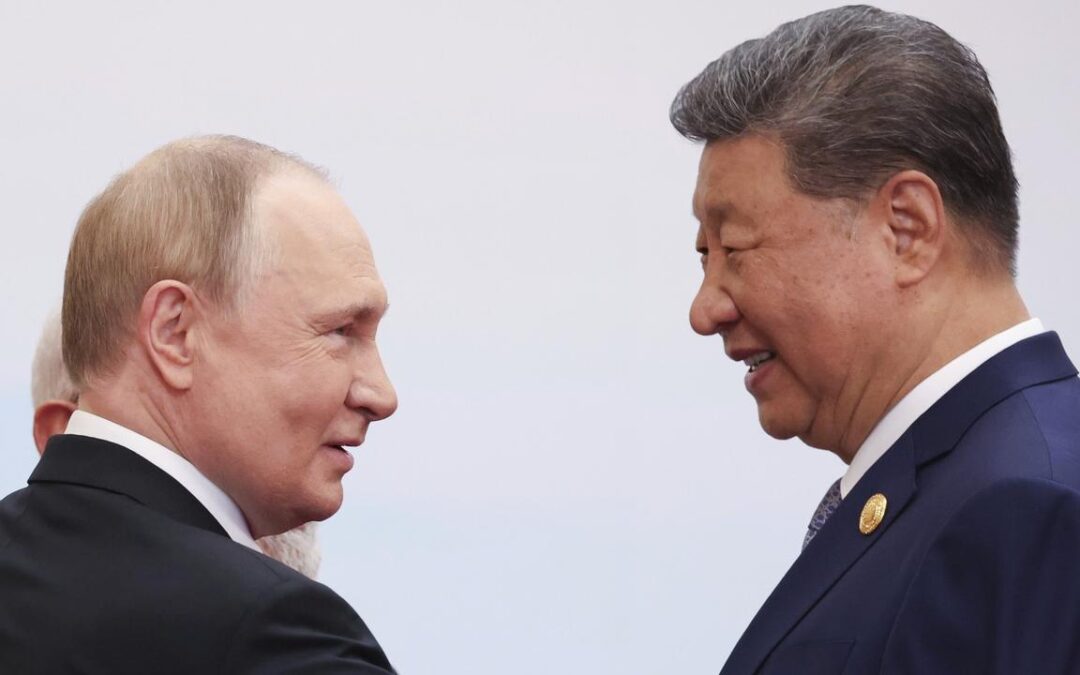
Xi, Putin share vision for new global order at forum
Chinese President Xi Jinping has urged leaders at a regional summit to leverage their “mega-scale market”, while Russian President Vladimir Putin showed support for Xi’s ambition for a new global security and economic order that poses a challenge to the US.
The Shanghai Cooperation Organisation (SCO) has set a model for a new type of international relations, Xi said in opening remarks addressing more than 20 world leaders at a two-day summit held in northern China’s port city Tianjin.
“We should advocate for equal and orderly multipolarisation of the world, inclusive economic globalisation and promote the construction of a more just and equitable global governance system,” he said.
“We must take advantage of the mega-scale market … to improve the level of trade and investment facilitation,” said Xi, urging the bloc to boost co-operation in fields including energy, infrastructure, science and technology, and artificial intelligence.
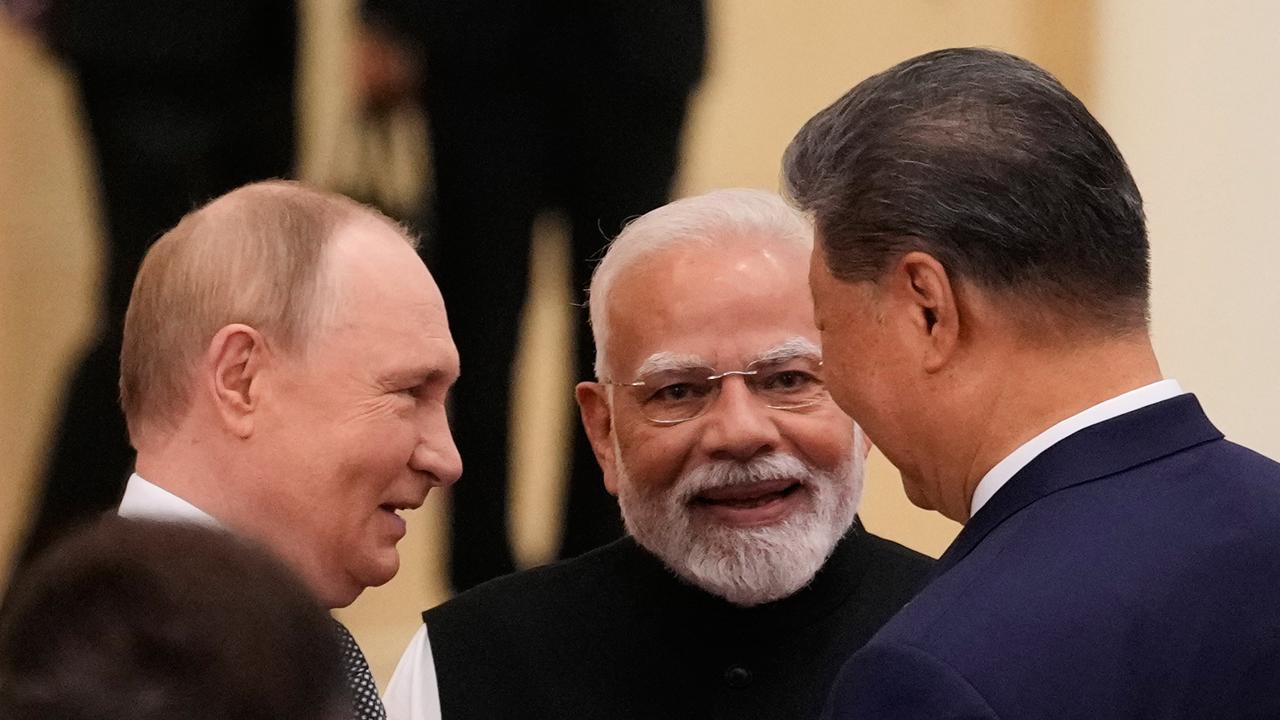
Putin said the grouping has revived “genuine multilateralism” with national currencies increasingly used in mutual settlements.
“This, in turn, lays the political and socio-economic groundwork for the formation of a new system of stability and security in Eurasia,” he said on Monday.
“This security system, unlike Euro-centric and Euro-Atlantic models, would genuinely consider the interests of a broad range of countries, be truly balanced, and would not allow one country to ensure its own security at the expense of others.”
Indian Prime Minister Narendra Modi and other leaders from Central Asia, the Middle East, South Asia and Southeast Asia attended the opening ceremony in a major show of Global South solidarity.
The security-focused bloc, which began as a group of six Eurasian nations, has expanded to 10 permanent members and 16 dialogue and observer countries in recent years.
Xi called on organisation partners to “oppose Cold War mentality and bloc confrontation” and to support multilateral trade systems.
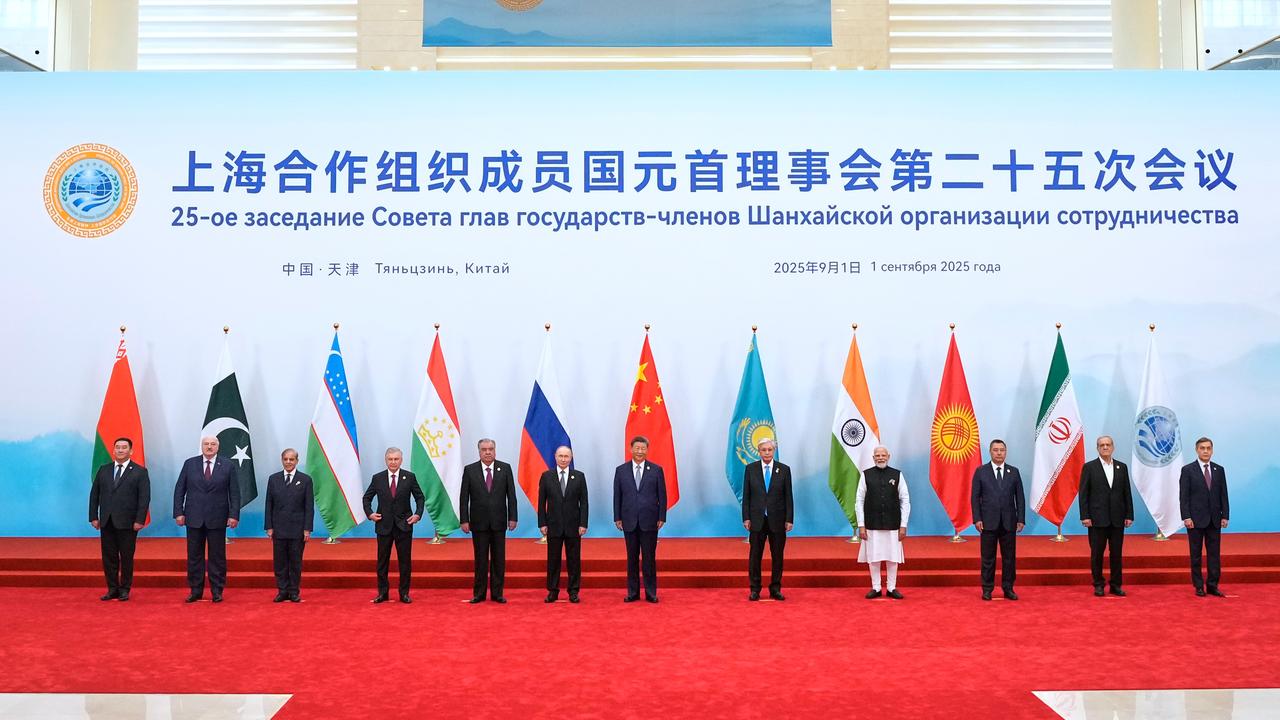
That was an apparent dig at US President Donald Trump’s tariff war which has disproportionately affected developing economies such as India, whose exports were hit with a 50 per cent levy last week.
China will provide 2 billion yuan ($A428 million) of free aid to member states in 2025 and a further 10 billion yuan ($A2.1 billion) of loans to an SCO banking consortium, he added.
Speaking on the sidelines of the meeting on Sunday, United Nations Secretary-General Antonio Guterres said China played a “fundamental” role in upholding global multilateralism.
Beijing has also used the summit as an opportunity to mend ties with New Delhi.
Modi, who is in China on his first visit in seven years, and Xi both agreed on Sunday their countries are development partners, not rivals, and discussed ways to improve trade ties amid the global tariff uncertainty.
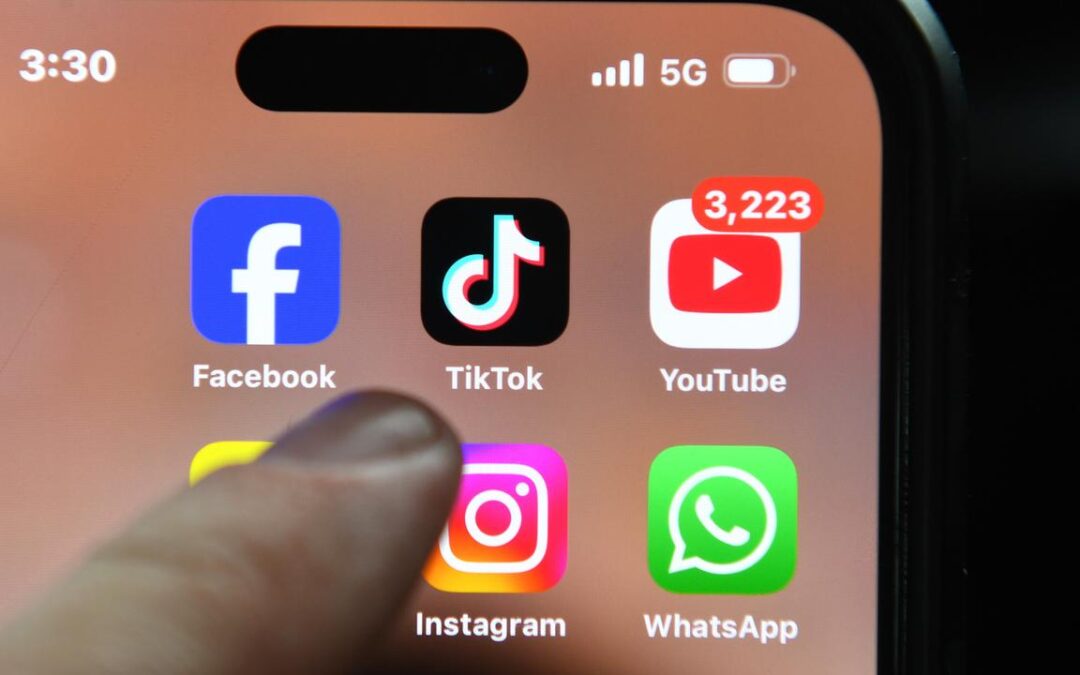
Social media ban no ‘watertight’ fix for child safety
Australia’s world-first social media ban will be no “silver bullet” for children’s online safety, even as age-assurance technologies are given the green light.
An independent trial evaluated ways to verify ages, including matching people with documents they provided and estimating someone’s age based on physical features and hand movements.
More than 60 tools were assessed as part of the trial, which found technology could be used “privately, efficiently and effectively” to prevent Australians accessing explicit and inappropriate content.
But this does not mean Australia’s children will be completely protected from online harms.
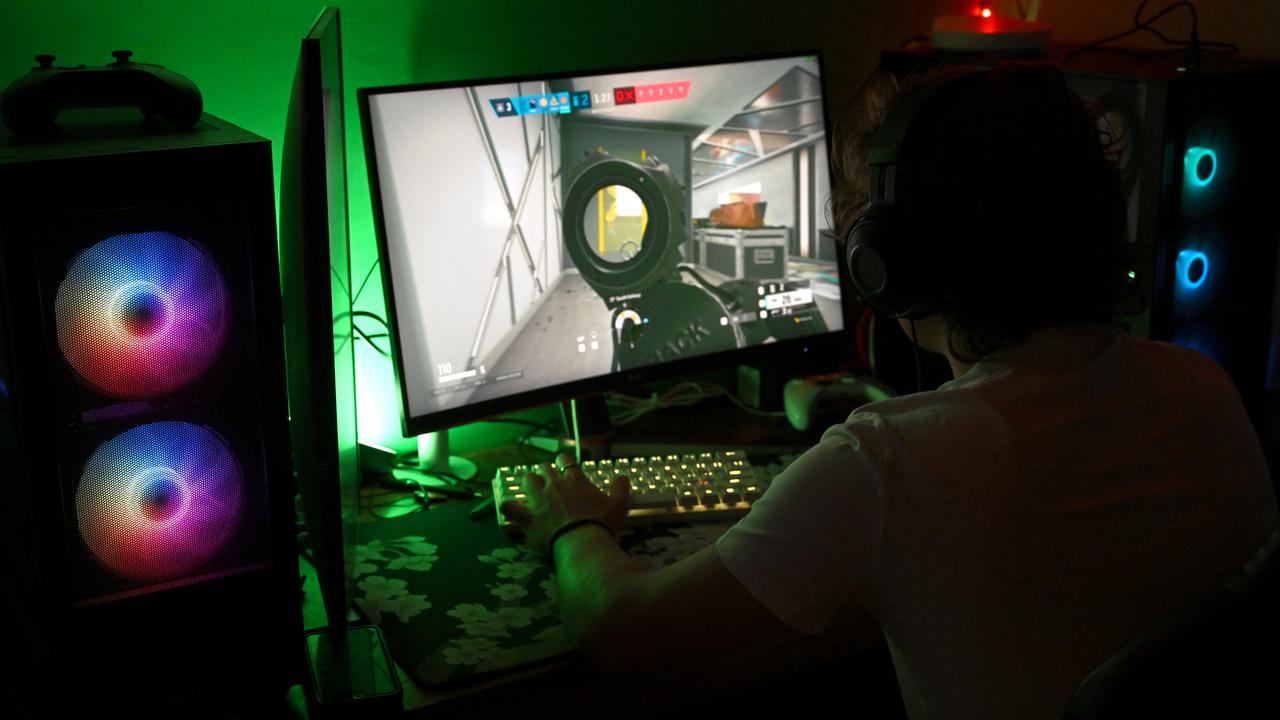
“There’s going to be groups of young people that will still get around this,” Australian National University associate professor of law Faith Gordon told AAP.
“I don’t think it’s a watertight solution at all.
“Age-assurance technology is clearly not the ‘silver bullet’ to make the digital world safer for children.”
The government’s social media ban requires platforms to take “reasonable steps” to enforce age limits, but does not specify a method.
The systems tested were “generally secure and consistent with information security standards” and could handle prickly issues including AI-generated spoofing and forgeries, members of the Age Check Certification Scheme said.
“However, the rapidly evolving threat environment means that these systems – while presently fairly robust – cannot be considered infallible,” the group made up of experts and stakeholders said.
Facial-recognition technology, often used for age assurance, was prone to biases and misidentifying people who were not white or did not present as male, Assoc Prof Gordon said.

There are significant drops in accuracy for those within two years of the cut-off age, meaning almost one-10th of 16-year-olds are falsely rejected.
Many Australians older than 16 could be wrongly excluded from using social media platforms, while some underage children could still have access.
The ban only prevents kids from creating accounts on social media platforms such as Facebook, Instagram, X, TikTok, YouTube and Snapchat, meaning they could still be groomed elsewhere online.
Young children would still be allowed on gaming platforms such as Fortnite, where bad actors could approach kids by offering in-game purchases, Assoc Prof Gordon said.
The report warned unnecessary data retention could occur as tech giants anticipated future regulation.
“We found some concerning evidence that in the absence of specific guidance, service providers were apparently over-anticipating the eventual needs of regulators about providing personal information for future investigations,” it said.
This could lead to increased risk of privacy breaches because of unnecessary and disproportionate collection and retention of data.
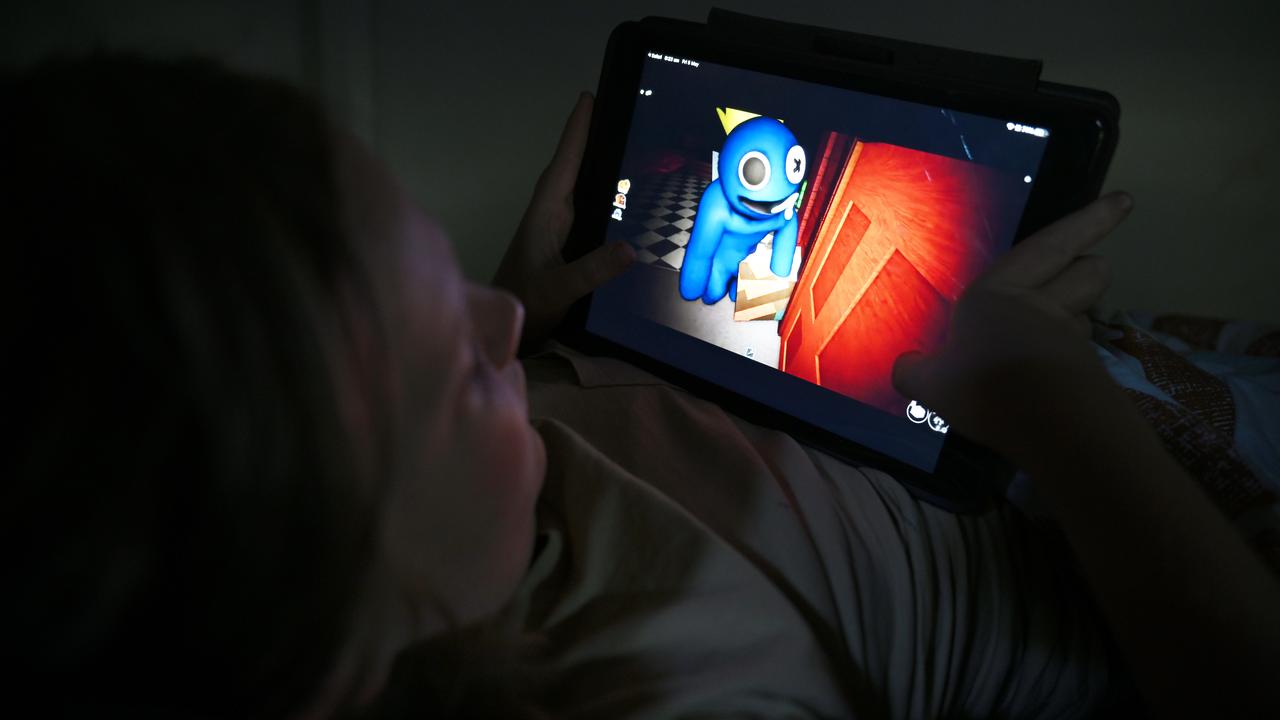
The Greens have urged the government to reconsider the use of age-verification technology.
“The age-assurance trial findings accidentally prove the social media age ban is unworkable and it is time to rethink this flawed approach,” Greens senator David Shoebridge said.
The trial was launched after the federal government announced a social media ban for people younger than 16, which will come into effect in December.
Communications Minister Anika Wells said the findings showed there were effective methods that could be used by social media platforms to enforce age limits.
Tech giants could be fined up to $49.5 million for failing to prevent people younger than 16 from having an account on an age-restricted social media platform.
“This report is the latest piece of evidence showing digital platforms have access to technology to better protect young people from inappropriate content and harm,” Ms Wells said.
“While there’s no one-size-fits-all solution to age assurance, this trial shows there are many effective options and importantly, that user privacy can be safeguarded.”
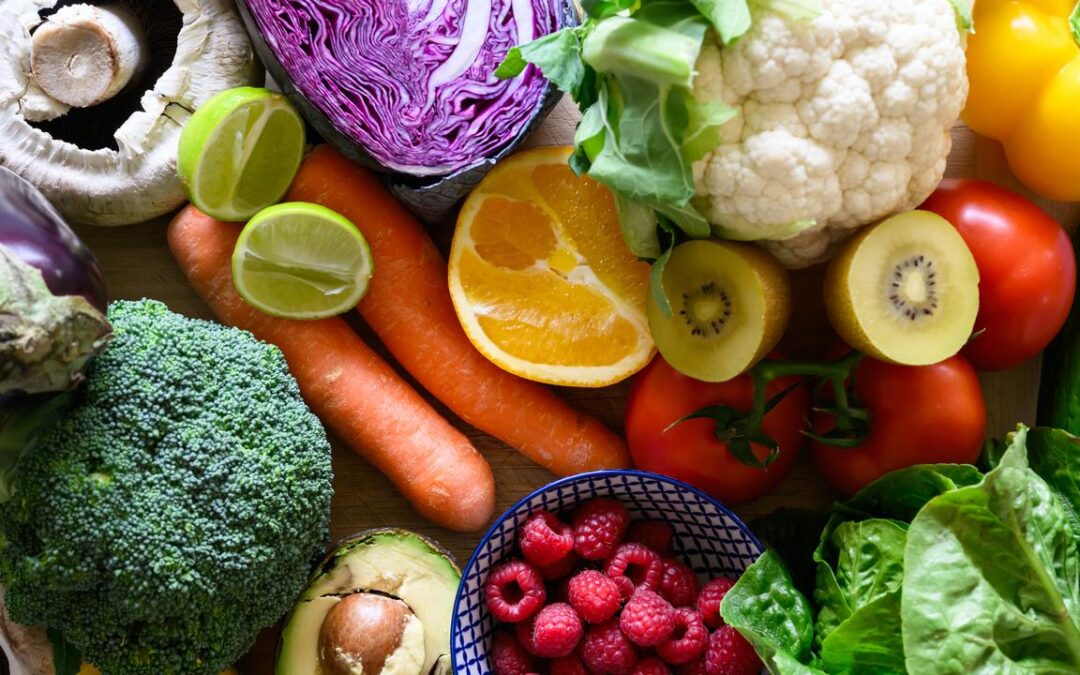
Veggie suppliers accused of fixing supermarket prices
Four fresh vegetable suppliers to supermarket chain Aldi have been accused of fixing prices for produce on Australia’s east coast.
The competition watchdog alleged the suppliers, and three executives, rigged prices on produce including broccoli, cauliflower, iceberg lettuce, cucumber, Brussels sprouts and zucchini.
Arrangements to rig or try to rig prices occurred more than two dozen times, the Australian Competition and Consumer Commission alleged on Monday.
The regulator asserts the illegality took place in NSW, Victoria and Queensland between 2018 and 2024.
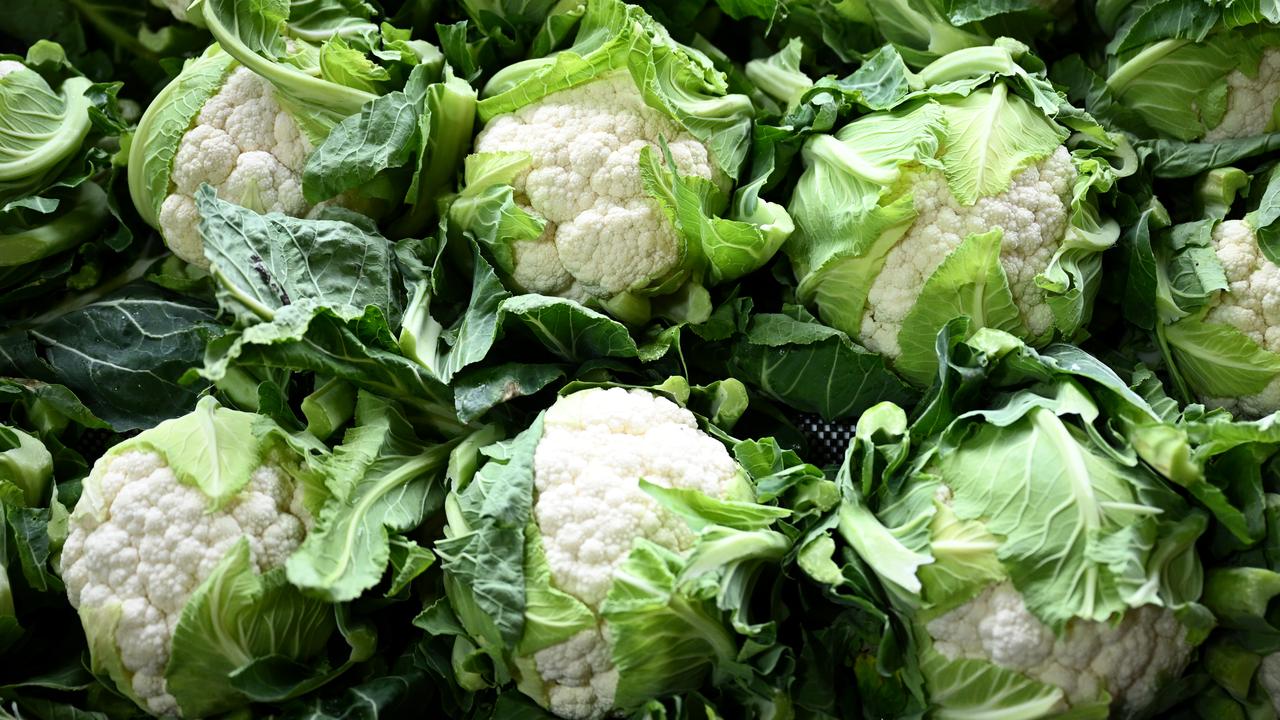
The Federal Court action follows the ACCC’s announcement it is prioritising consumer and fair trading concerns in the supermarket sector, with a focus on misleading pricing practices, for the 2025/26 financial year.
“Businesses acting together instead of competing can drive up prices and harm consumers, while disadvantaging other businesses that are seeking to compete fairly,” ACCC chair Gina Cass-Gottlieb said.
“In this instance, we allege that price-fixing conduct involving some essential household vegetables took place across three states.
“Protecting competition in our fresh food supply chains is extremely important to drive price competition for the benefit of Australian consumers.”
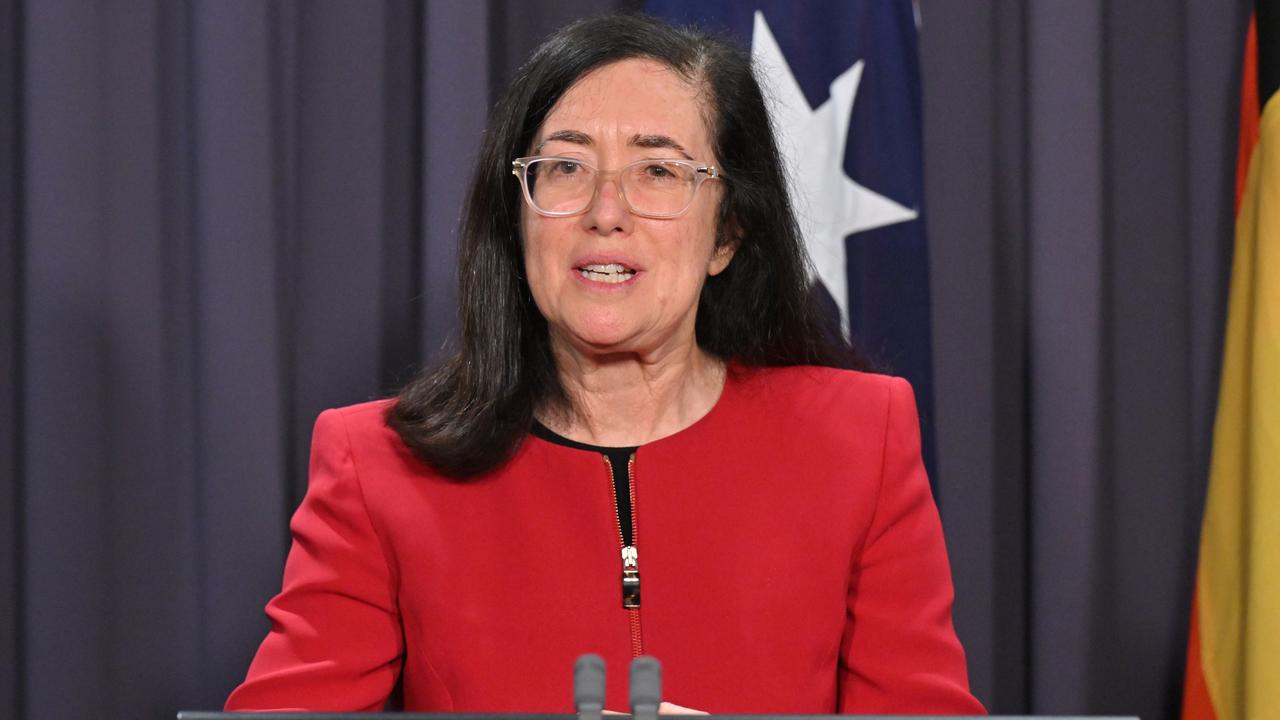
One of the suppliers, Perfection Fresh Australia, said the case involved “a small number of fresh produce that was supplied to one customer”.
“Perfection Fresh has been working with the ACCC with a view to resolving these proceedings,” it said in a statement.
Another supplier, Velisha Farms, said “the allegations being made by the ACCC are very serious and we do not accept them”.
“We have retained lawyers and intend on defending these proceedings,” it said in a statement.
The other companies accused of being in the cartel – Hydro Produce (Aust) and M. Fragapane & Sons – did not immediately respond to a request for comment.
Griffith University competition and retail expert Graeme Hughes said the civil action was significant as it “signals the ACCC’s ongoing focus on competition within the supermarket sector”.
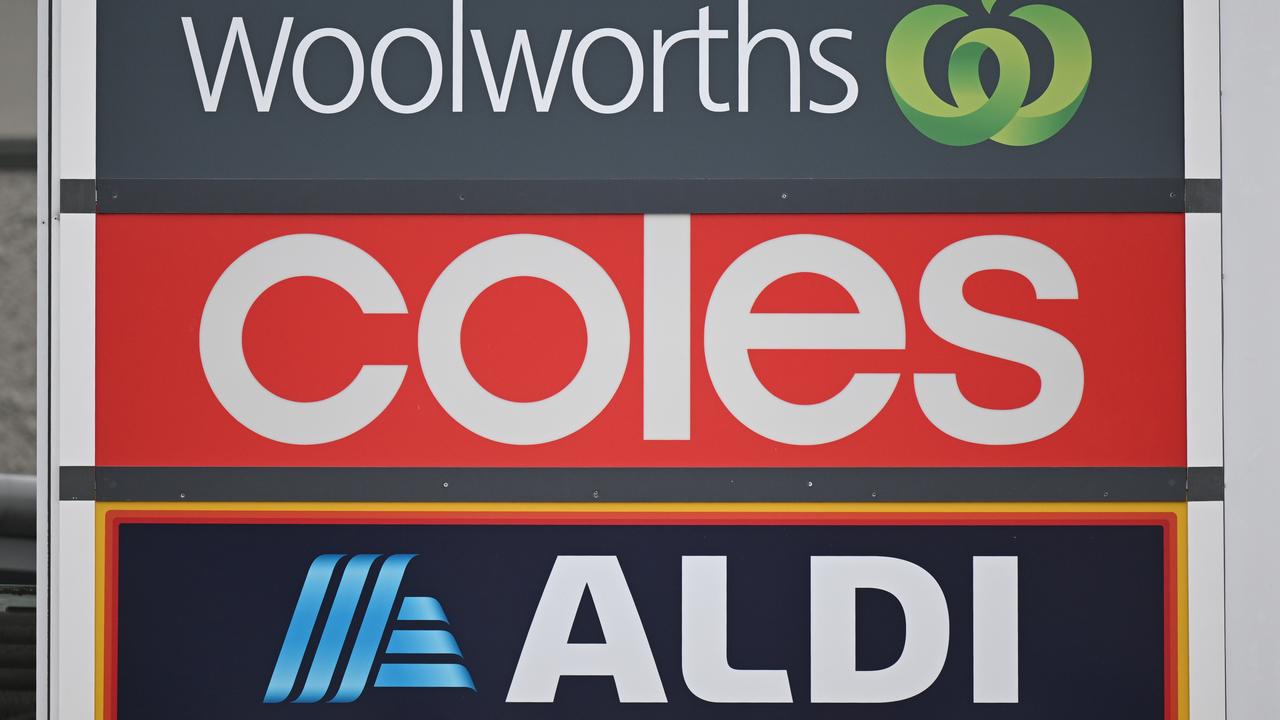
He said if the regulator was successful, the suppliers faced potential fines of $50 million or 30 per cent of revenue over the period of breach. Individuals faced penalties of up to $2.5 million.
“If proven, the immediate effect on individual grocery bills may not be immediately obvious – however it could lead to greater market transparency,” the academic told AAP.
Over the long-term, more transparency could lead to “more competitive pricing for fresh produce”, he said.
The federal government, concerned about higher supermarket prices adding to pressures on household budgets, has boosted the ACCC’s funding by more than $30 million to go after supermarkets using misleading pricing tactics.
A major ACCC inquiry into supermarkets in March called for greater transparency about supermarkets’ wholesale fresh produce prices after finding suppliers bore a disproportionate amount of risk in supply fluctuations.
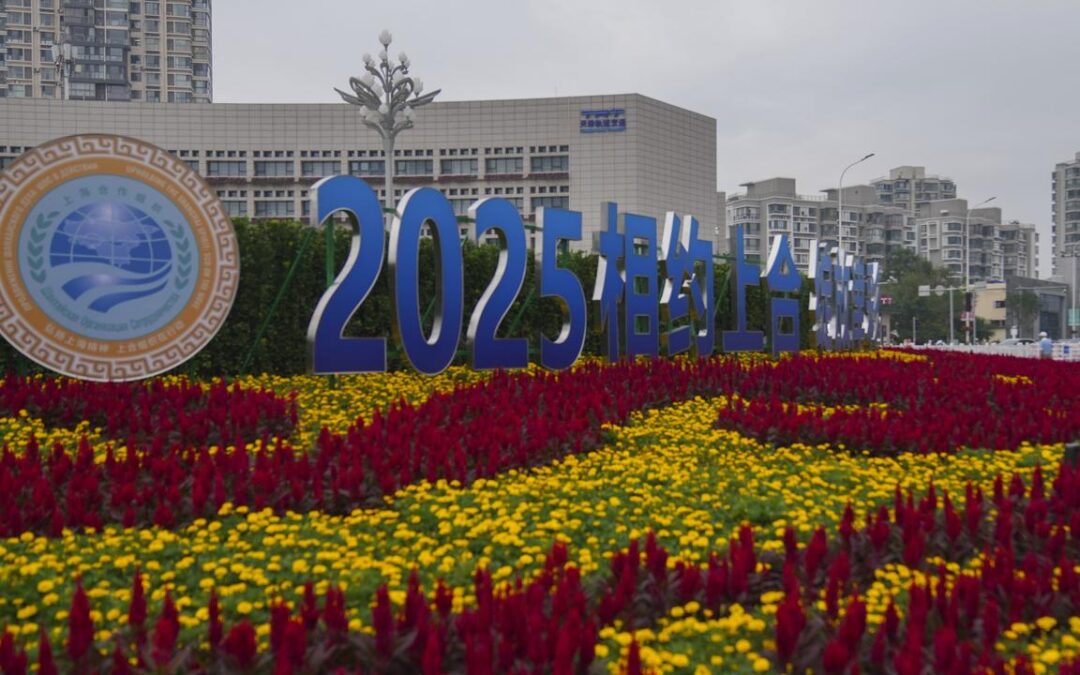
China’s Xi unveils vision for new global order
Chinese President Xi Jinping has urged Shanghai Cooperation Organisation members to leverage their “mega-scale market”, while unveiling his ambition for a new global security and economic order that poses a challenge to the United States.
The Shanghai Cooperation Organisation (SCO) has set a model for a new type of international relations, Xi said in opening remarks addressing more than 20 world leaders at a two-day summit held in northern China’s port city Tianjin on Monday.
“We should advocate for equal and orderly multipolarisation of the world, inclusive economic globalisation and promote the construction of a more just and equitable global governance system,” he said.
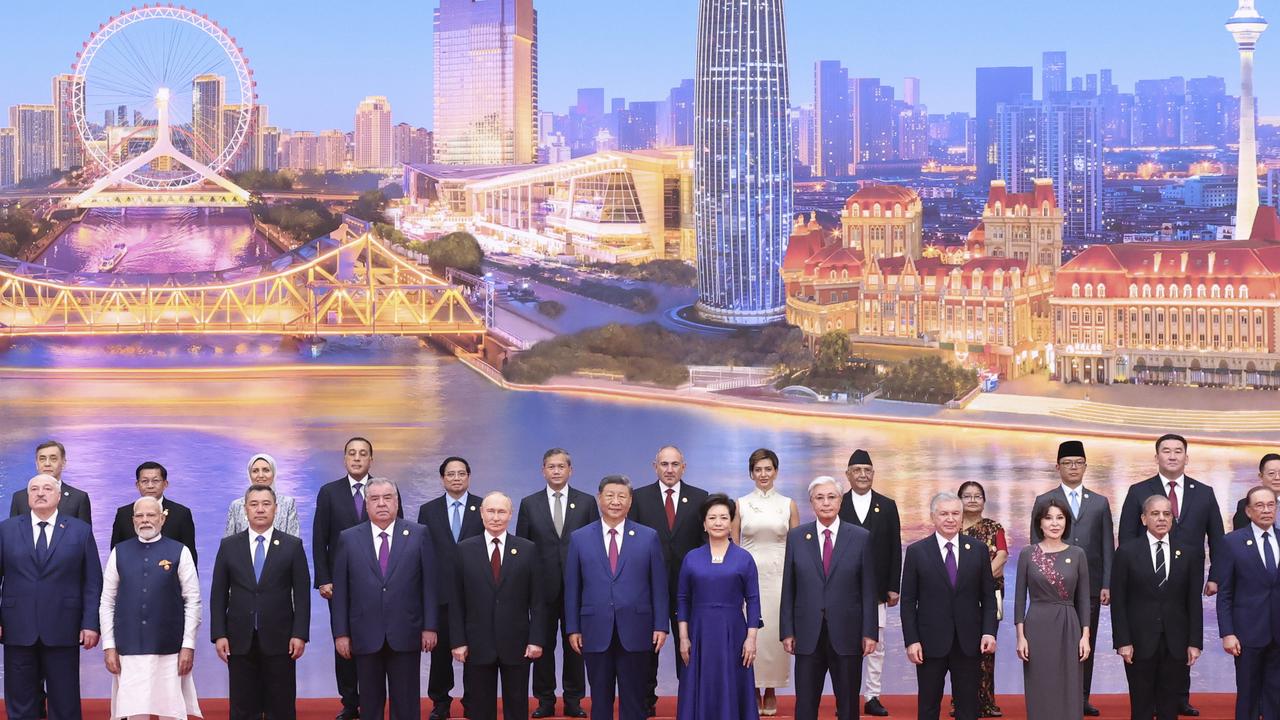
China will provide two billion yuan ($A428 million) of free aid to member states this year and a further 10 billion yuan of loans to a SCO banking consortium, he added.
“We must take advantage of the mega-scale market… to improve the level of trade and investment facilitation,” said Xi, urging the bloc to boost co-operation in fields including energy, infrastructure, science and technology, and artificial intelligence.
Russia’s Vladimir Putin, Indian Prime Minister Narendra Modi and other leaders from Central Asia, the Middle East, South Asia and Southeast Asia attended the opening ceremony in a major show of Global South solidarity.
The security-focused bloc, which began as a group of six Eurasian nations, has expanded to 10 permanent members and 16 dialogue and observer countries in recent years.
Xi also called on organisation partners to “oppose Cold War mentality and bloc confrontation” and to support multilateral trade systems, an apparent dig at US President Donald Trump’s tariff war which has disproportionately affected developing economies such as India, whose exports were hit with a 50 per cent levy last week.
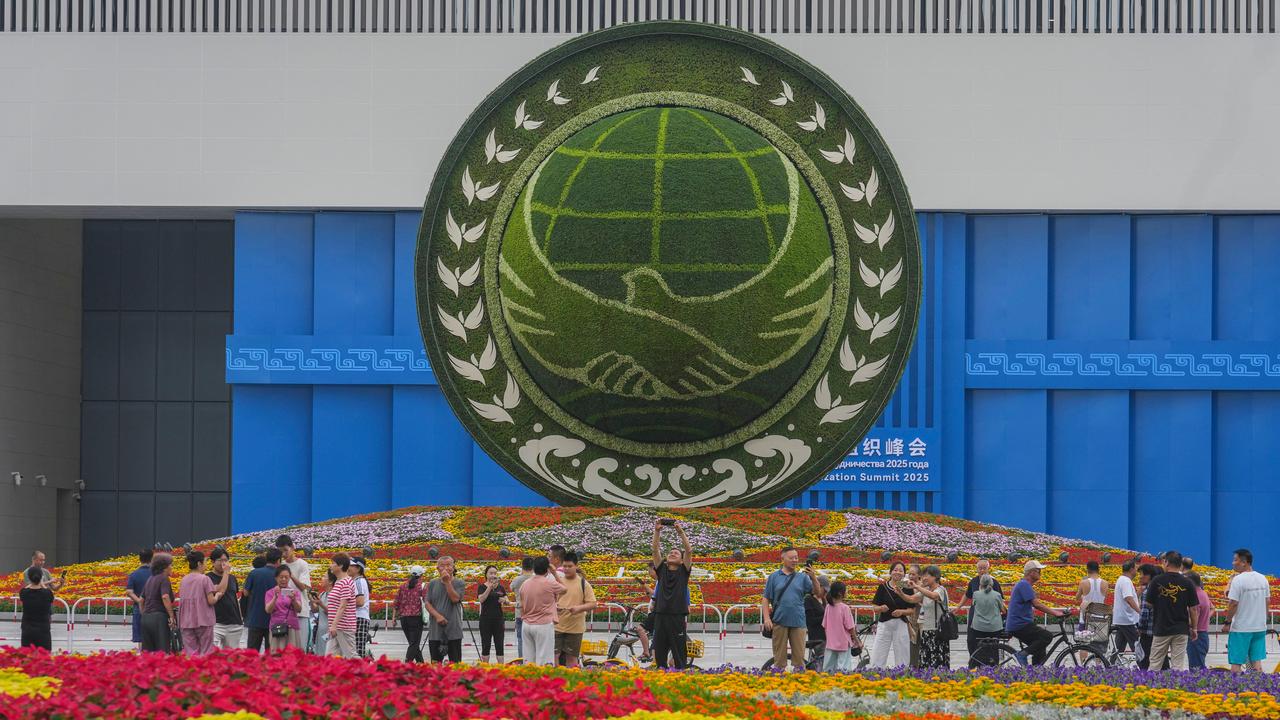
United Nations Secretary-General Antonio Guterres said China played a “fundamental” role in upholding global multilateralism on Sunday.
Analysts say China will use this year’s largest-ever summit to demonstrate an alternative vision of global governance to the American-led international order at a time of erratic policymaking, a US retreat from multilateral organisations and geopolitical flux.
Beijing has also used the summit as an opportunity to mend ties with New Delhi.
Modi, who is in China on his first visit in seven years, and Xi both agreed on Sunday their countries are development partners, not rivals, and discussed ways to improve trade ties amid the global tariff uncertainty.
with dpa
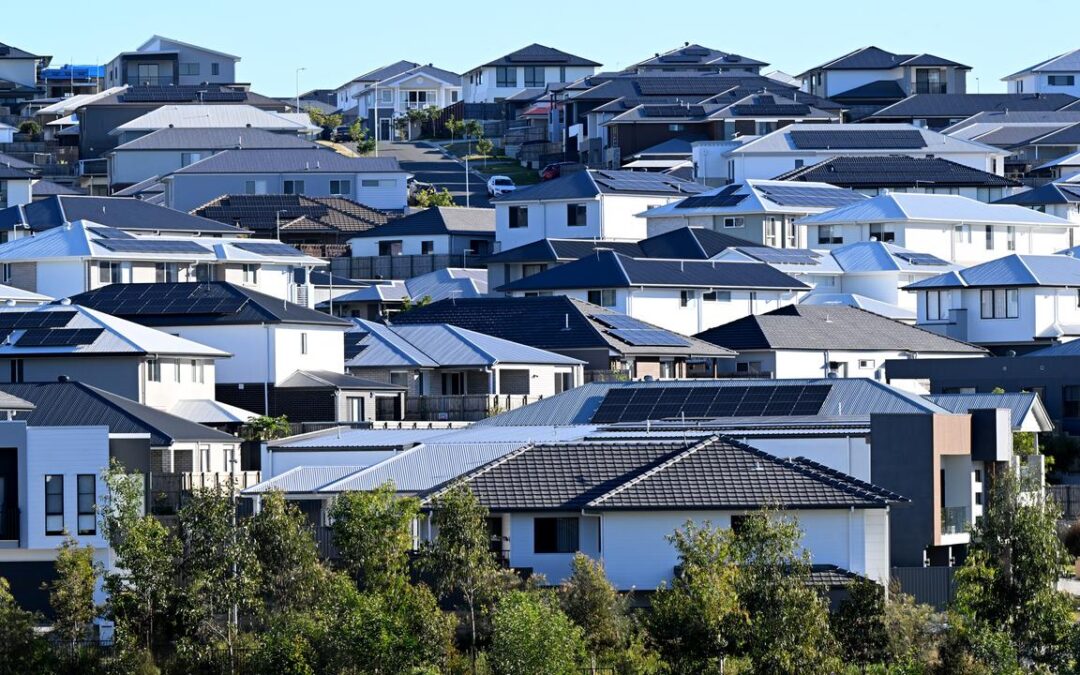
Home prices continue rising amid supply-demand mismatch
Australian home prices have clocked the fastest month of growth since May 2024, as a drop in building approvals clouds the outlook for housing affordability.
The 0.7 per cent rise in August marks the seventh consecutive month of growth and lifts the annual change in dwelling values to 4.1 per cent, according to Cotality’s home value index.
Nationally, prospective homebuyers must now fork out a record $848,858 for a median dwelling.
The property analytics firm says the cycle has been gradually building since a rate cut in February, with demand spurred by a lift in borrowing capacity, wages growth, confidence and urgency as advertised stock levels remain tight.
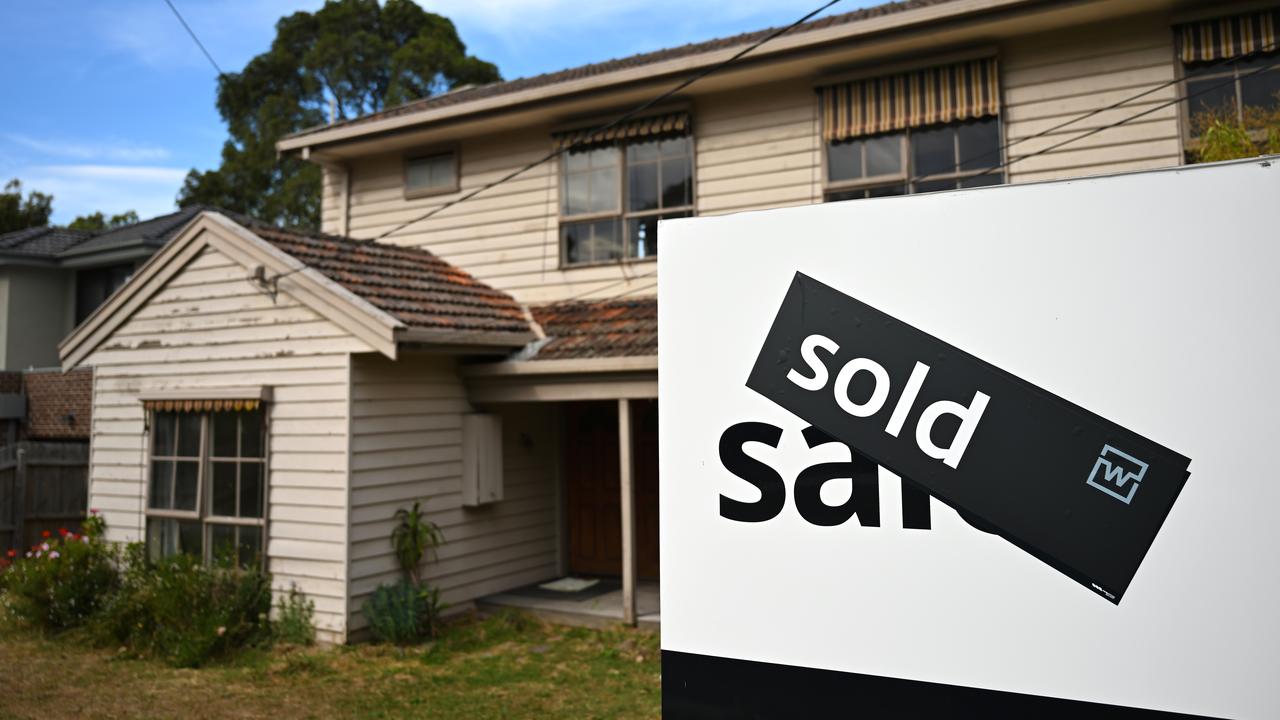
“Once again we are seeing a clear mismatch between available supply and demonstrated demand placing upwards pressure on values,” Cotality director Tim Lawless said.
“The annual trend in estimated home sales is up two per cent on last year and tracking almost four per cent above the previous five-year average.”
At the same time, advertised supply levels remain about 20 per cent below what is considered average for this time of year.
Dwelling approvals slumped 8.2 per cent in July, the Australian Bureau of Statistics reported on Monday, reflecting some reversion to the mean after a sharp 12.2 per cent jump the month prior.
Despite recent volatility in housing consents, the trend is clearly in an upswing.
Timothy Hibbert, head of property and building forecasting for Oxford Economics Australia, expects commencements to approach 200,000 in 2026.
That would still be 40,000 homes short of the rate required to meet the National Housing Accord target of 1.2 million new homes over five years.
“We expect the late decade apartment upturn will be different to the last,” Mr Hibbert said.
“The accumulation of rezoning, planning concessions, institutional investment incentives and social housing renewal will play a defining role.”
The Property Council’s policy and advocacy executive Matthew Kandelaars said progress was being made but the numbers showed the supply pipeline remained constrained.
“A mix of elevated construction costs, shortages of labour, complex approval processes, punitive state taxes and low productivity on construction sites is putting strain on the industry’s ability to deliver housing,” he said.
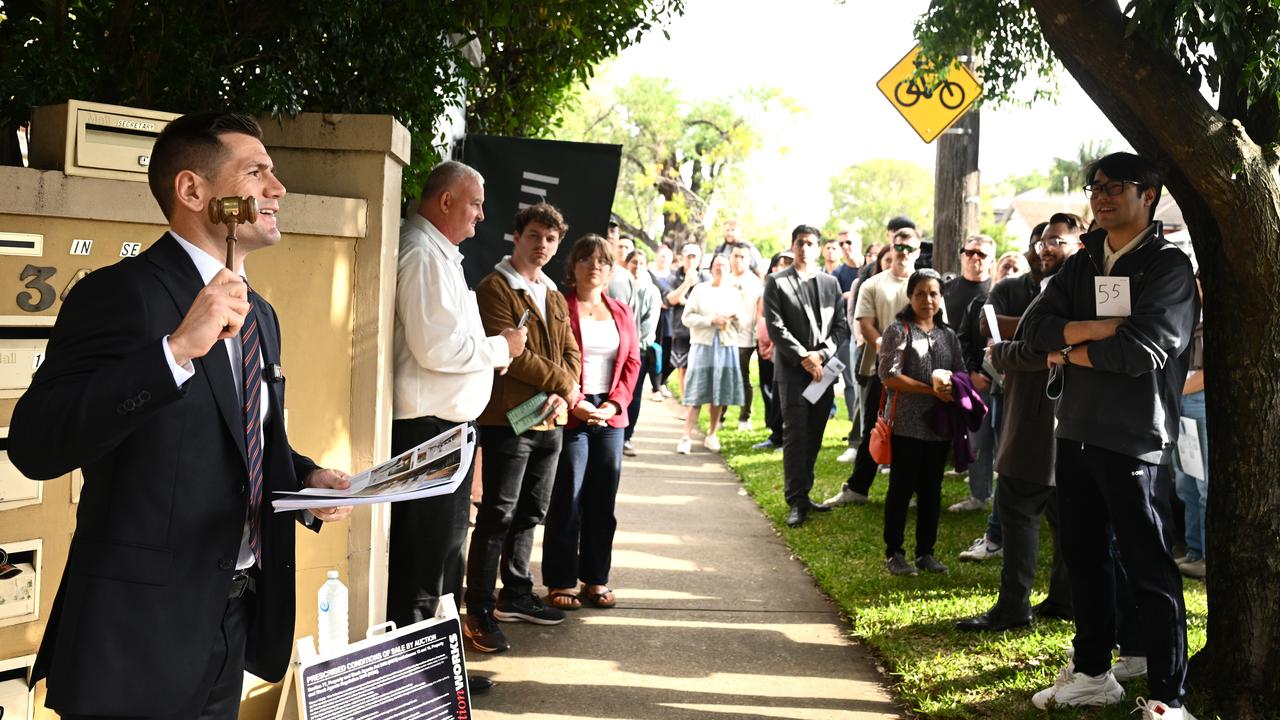
Mr Lawless says vendors are in a strong position as spring gets under way.
Auction clearances climbed to a 20-month peak of 70 per cent in August and competition among sellers is comparatively mild.
“We are starting to see the usual start of spring upswing in new listings coming to market but from a low base,” he said.
“A pick up in the flow of stock … will be good news for buyers who generally have limited choice at the moment.”
AMP chief economist Shane Oliver expects home prices to rise about seven per cent this year, but could grow as fast as 10 per cent in 2026 as interest rate cuts and government support for first home buyers drive demand.
“Some more gradual RBA rate cuts, real wages growth, the ongoing housing shortage and more support for first home buyers from October are expected to drive further gains in average prices this year,” Dr Oliver said.
“Poor affordability, rates remaining relatively high compared to the 2021 low and slowing population growth will act as constraints though.”
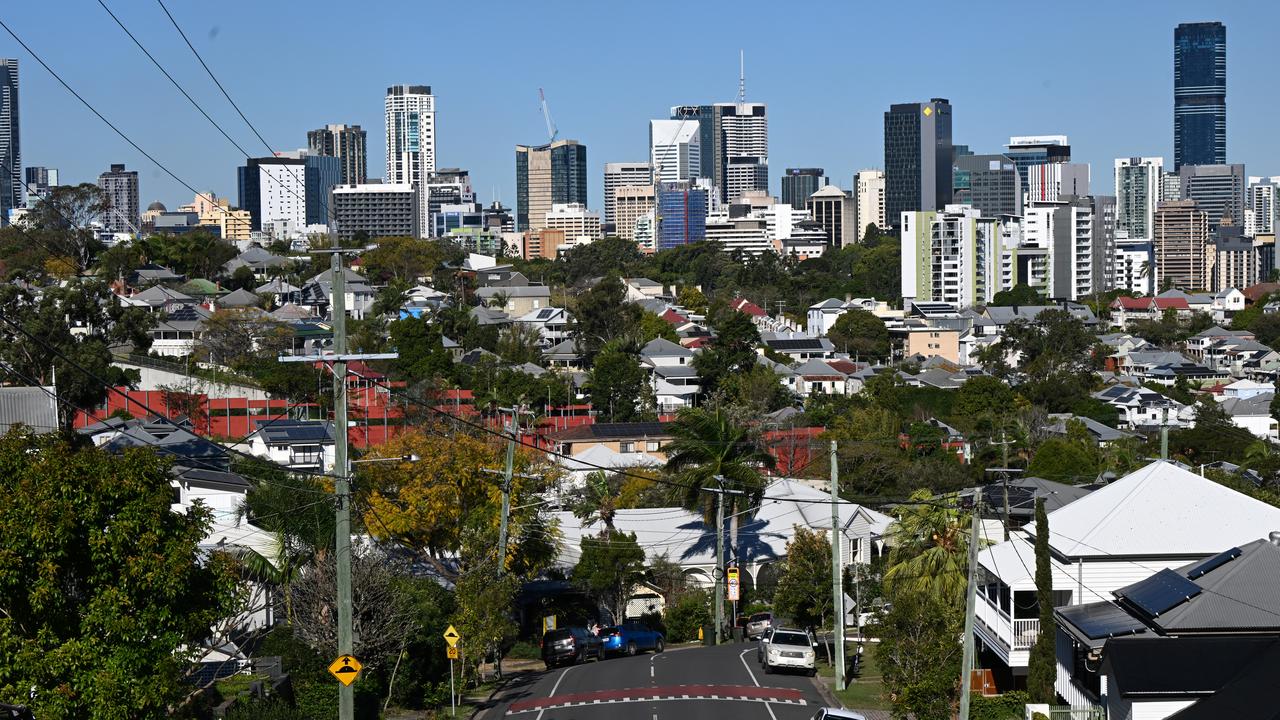
Cotality found nearly every Australian region recorded a rise in values over the month, with Tasmania’s drop of 0.2 per cent the exception.
Mid-sized capitals continue to lead the way, with August’s highest gains reached by Brisbane at 1.2 per cent and Perth at 1.1 per cent.
Adelaide wasn’t far behind with a 0.9 per cent lift in August, while Sydney came in at 0.8 per cent and Melbourne 0.3 per cent.
Housing Minister Clare O’Neil said the government was delivering on its agenda to boost supply.
More than 5000 social and affordable homes had been completed with the help of Commonwealth funding since the Albanese government was first elected, she said.
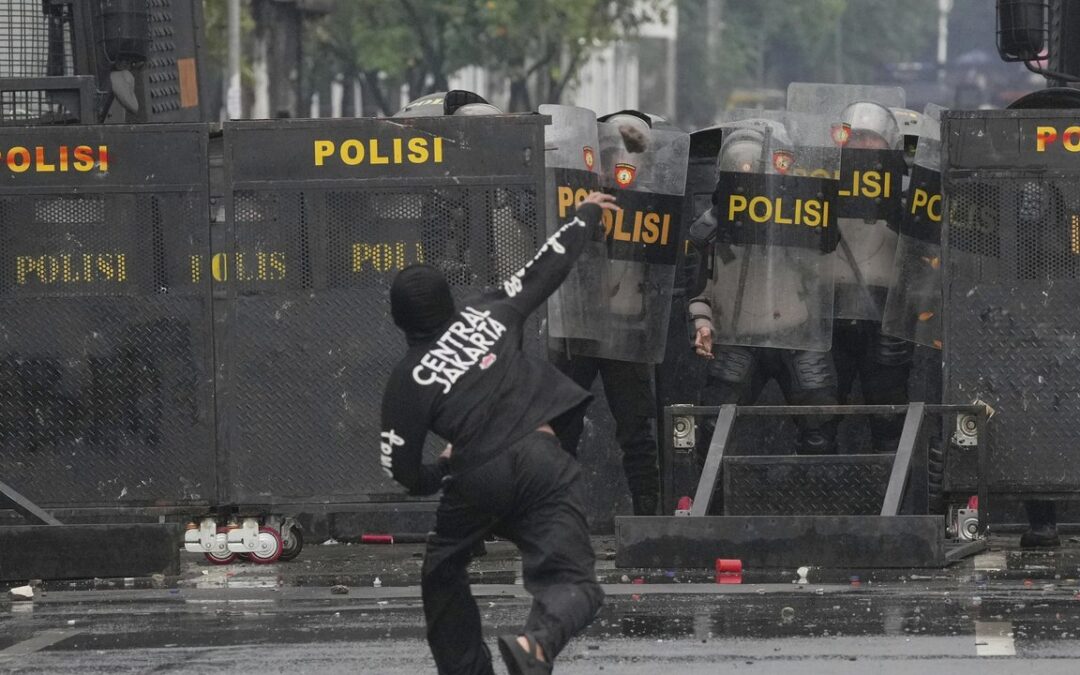
Indonesian groups call off protests amid security fears
Indonesian students and civil society groups have called off protests after a week of escalating anger over MPs’ pay and the police response, citing fears of heightened security measures after deadly riots over the weekend.
The protests began in Jakarta a week ago and spread nationwide, escalating in size and intensity after a police vehicle hit and killed a motorcycle taxi driver on Thursday night.
President Prabowo Subianto said on Sunday political parties had agreed to cut MPs’ benefits, including a controversial $US3,000 ($A4,587) monthly housing allowance, in a bid to ease public fury after nationwide protests left six people dead.
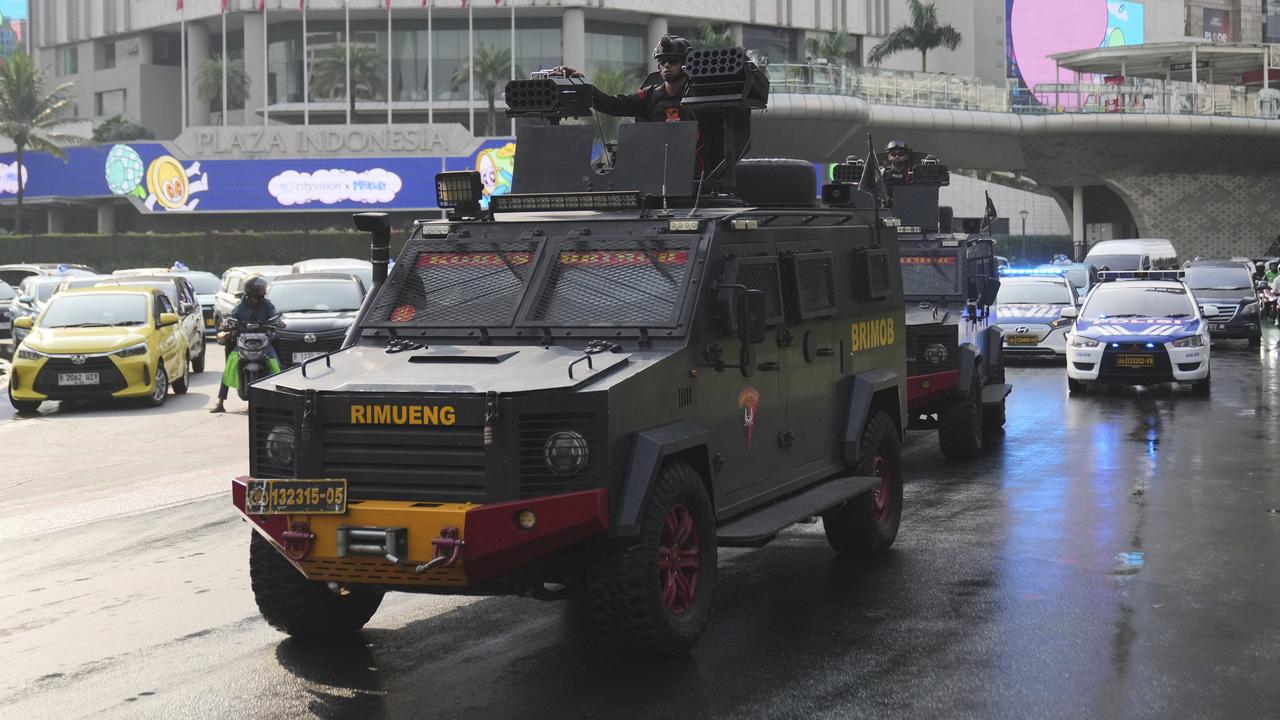
He also ordered the military and police to take stern action against rioters and looters after homes of political party members and state buildings were ransacked or set ablaze.
The Alliance of Indonesian Women, a coalition of women-led civil society groups, said on Monday it had delayed planned protests at the parliament to avoid any crackdown by authorities.
“The delay is done to avoid increased violent escalation by authorities … the delay takes place until the situations calm down,” the group said in an Instagram post on Sunday.
Student groups also delayed a protest on Monday, with one umbrella group saying the decision was “due to very impossible conditions”.
The protests and violence unsettled financial markets, with the stock market falling more than three per cent in opening trades on Monday.
Flanked by leaders of eight Indonesian political parties, Subianto told a televised news conference in Jakarta on Sunday, they had agreed to cut the housing allowance and suspend overseas trips for MPs.
It was a rare concession in response to mounting public anger.
As nationwide protests escalated across the world’s third-largest democracy last week, Subianto summoned the country’s prominent figures and cancelled a high-profile trip to China.
Critics argue the MPs’ allowance is not only excessive but also insensitive at a time when most people are grappling with soaring living costs, taxes and rising unemployment.
The protests grew wider and more violent following the death of 21-year-old ride-hailing driver Affan Kurniawan.
A video on social media, apparently showing his death during a rally in Jakarta on Thursday, shocked the nation and spurred an outcry against the security forces.
Kurniawan was reportedly completing a food delivery order when he was caught up in the clash.
Witnesses said the armoured car from the National Police’s Mobile Brigade unit suddenly sped through the crowd of demonstrators and hit Kurniawan, causing him to fall.
Instead of stopping, the car ran over him.
Subianto said police are investigating seven officers linked to the incident.
The death toll from riots that broke out in multiple cities rose to six after authorities in Yogyakarta on Sunday confirmed that Friday’s clashes between rock-throwing demonstrators and riot police killed a 21-year-old university student.
Subianto reiterated that his government respects freedom of expression as guaranteed in Indonesia’s constitution and international conventions.
“But when demonstrations turn anarchic, destroying public facilities, endangering lives, and attacking private homes or public institutions, this becomes a serious violation of law,” he said.
Subianto cautioned that violent acts risk veering into treason and terrorism, and warned “the state would not tolerate attempts to destabilise the country”.
with reuters
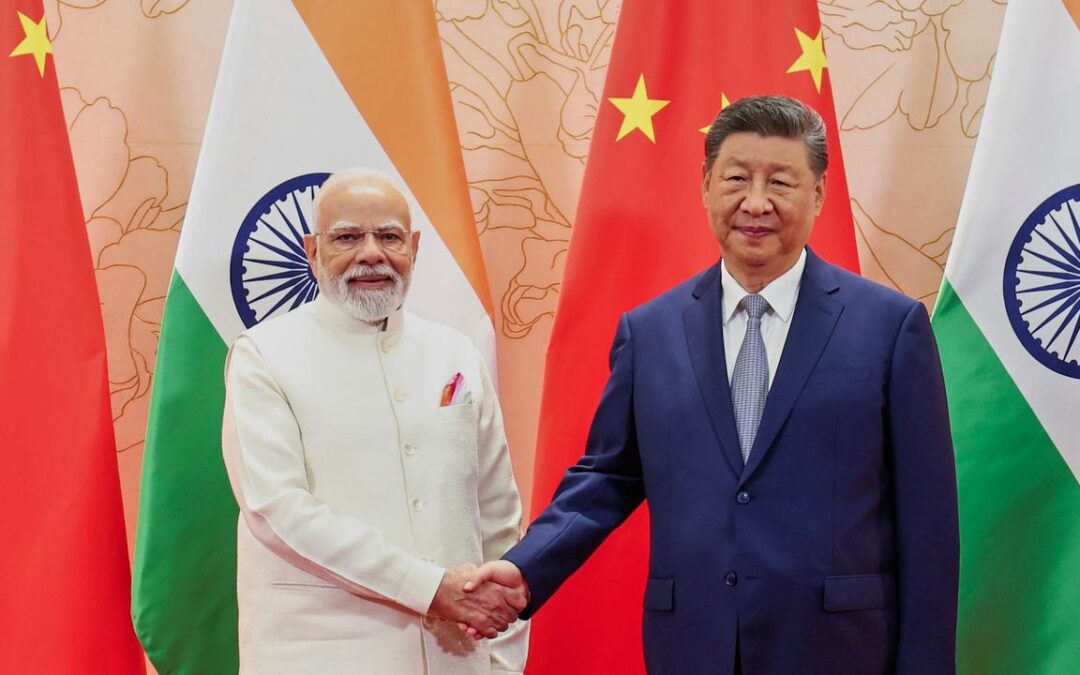
China’s Xi and India’s Modi vow to resolve border fight
Chinese leader Xi Jinping and Indian Prime Minister Narendra Modi have pledged to resolve their border differences and bolster co-operation at a regional summit in China’s port city of Tianjin.
Modi is on his first visit to China since relations between the two countries deteriorated after Chinese and Indian soldiers engaged in deadly border clashes in 2020.
Modi is visiting as part of India’s membership in the Shanghai Cooperation Organization, a regional political, economic and security group founded by China.
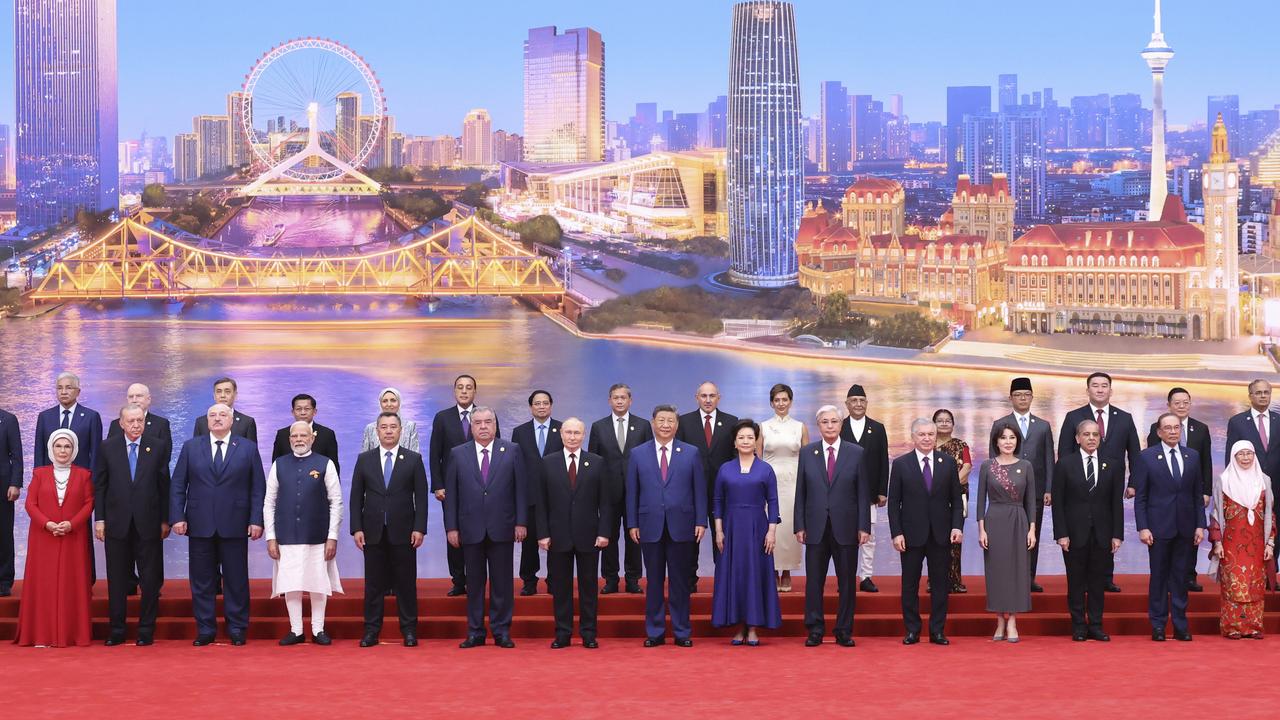
Modi said in his opening remarks that relations with China have moved in “a meaningful direction”, adding that “there is a peaceful environment at the borders after disengagement”.
He also noted “the importance of peace and tranquillity on the border areas for continued development of bilateral relations,” according to a statement from India’s Ministry of External Affairs.
Xi said he hoped the Tianjin meeting will “further elevate” and “promote the sustained, healthy and stable development of bilateral relations”, according to state broadcaster CCTV.
The two sides should “not let the border issue define the overall China-India relationship”, Xi said, adding that economic development should be their main focus.
“As long as they remain committed to the overarching goal of being partners, not rivals, and providing development opportunities, not threats, China-India relations will flourish and move forward steadily,” Xi said.
Russian President Vladimir Putin, who arrived in Tianjin on Sunday, is due to meet with both leaders in the coming days.
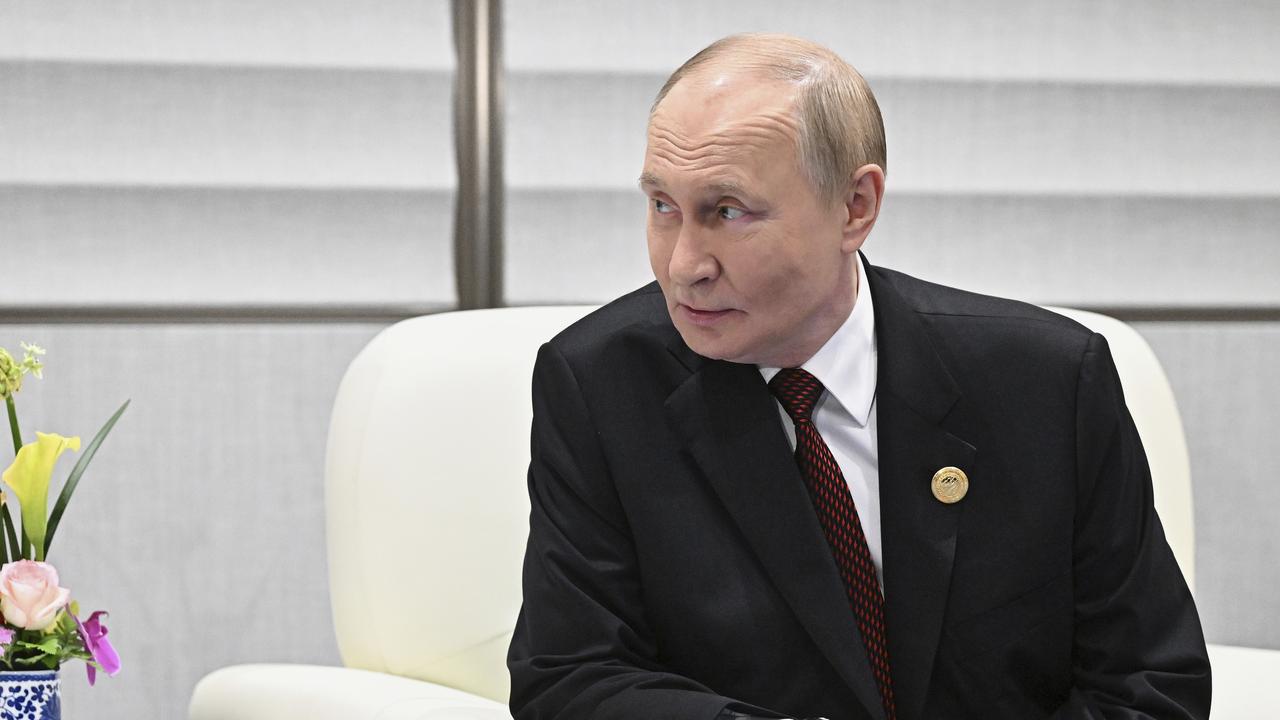
Unlike Modi, Putin plans to stay in China to attend a military parade in the capital marking the 80th anniversary of Japan’s defeat in World War II.
Earlier in August, China’s top diplomat Wang Yi flew to New Delhi, as the two sides announced their rapprochement. Both governments pledged to restart border talks, and resume issuing visas and direct flights.
Wang’s visit coincided with US President Donald Trump’s decision to impose 50 per cent tariffs on India over its purchase of Russian oil, but New Delhi’s process of rebuilding ties with Beijing had been in the works for months.
Modi made that message clear on Sunday, saying that “India and China both pursue strategic autonomy, and their relations should not be seen through a third country lens”, according to India’s foreign ministry.
China and India this year have increased official visits and discussed easing some restrictions on trade and the movement of people across the border. In June, Beijing allowed pilgrims from India to visit holy sites in Tibet.
with dpa
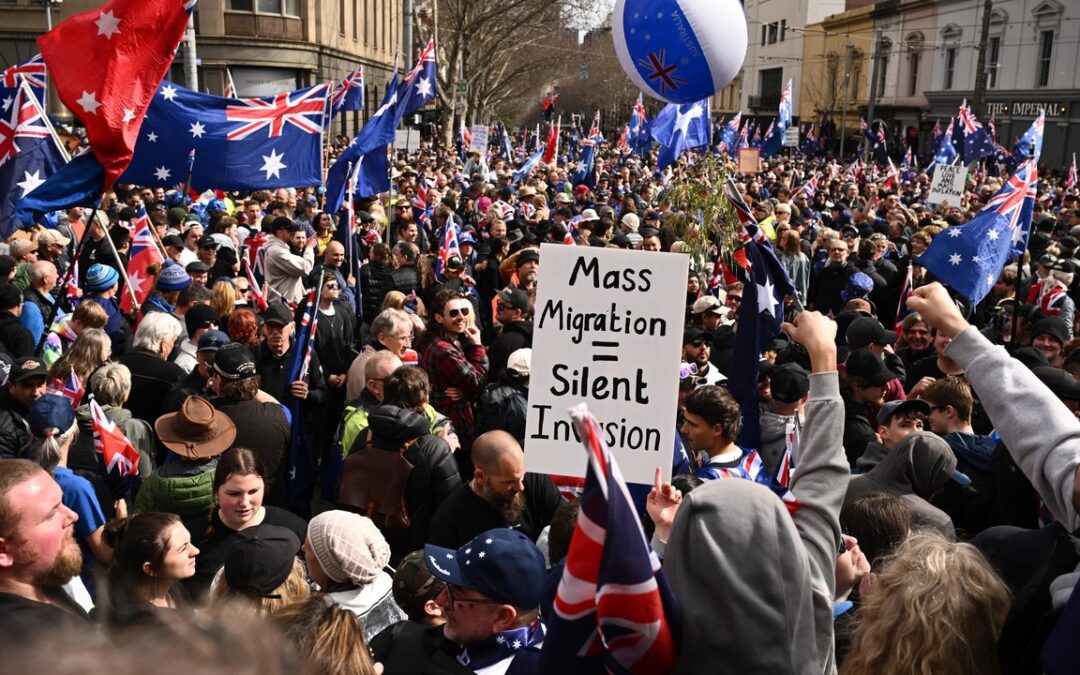
Anti-immigration rallies labelled a ‘neo-Nazi con job’
Nationwide anti-immigration rallies that sparked some violent clashes between protesters and police have been condemned by the government as racist and a neo-Nazi con job.
Tens of thousands of nationalists, dozens of dogs and at least one horse draped in Australian flags and paraphernalia joined the March For Australia rallies on Sunday in major cities including Sydney, Melbourne, Brisbane and Canberra.
Speakers and attendees were at pains to state they were not against immigrants and wanted the federal government to pause or slow the pace of immigration.
However, some of the rhetoric crossed into racism and xenophobia, with one speaker in Sydney spouting a theory about “a clear global agenda to shame, beat down and replace people with Anglo-Celtic and European heritage”.
Federal Multicultural Affairs Minister Anne Aly said people had legitimate concerns around the strains immigration was placing on housing and infrastructure.
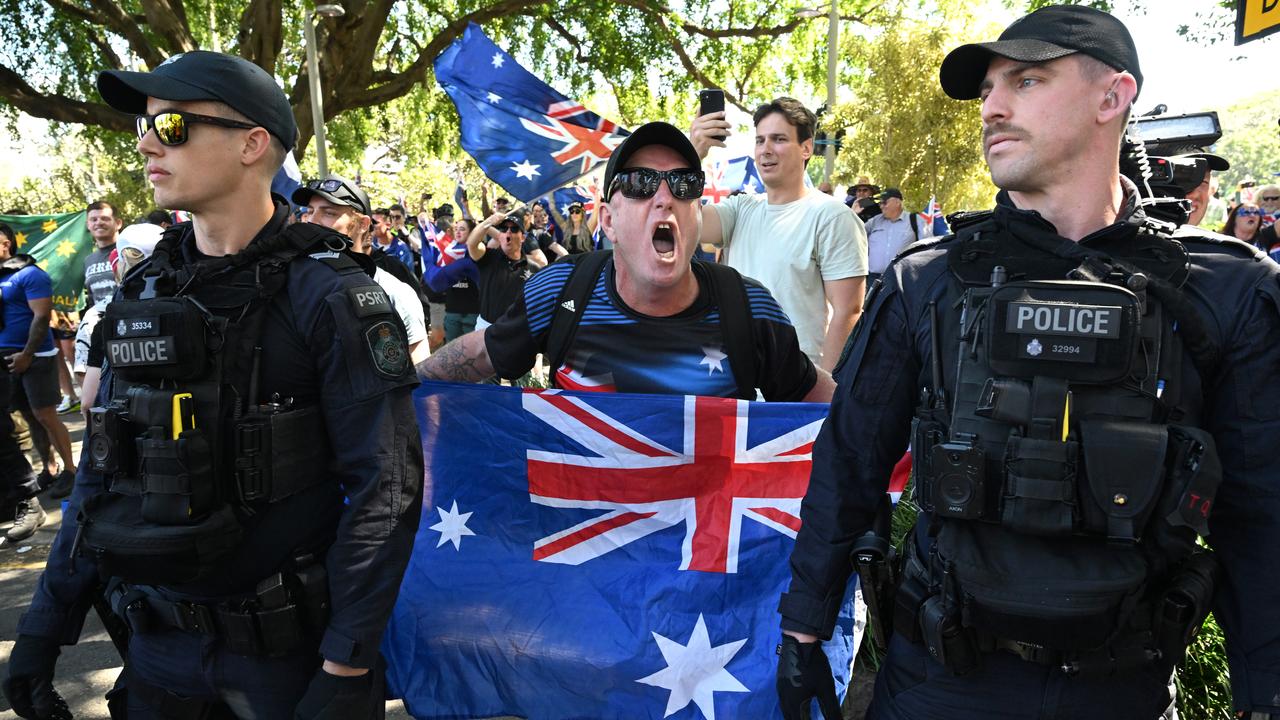
But the protests were clearly targeted at migrants from “countries that have brown people”, not white Western countries.
“It’s very clear from the conduct, that was observed at these marches, that these marches were a con by the far right neo-Nazis to prey on some legitimate concerns around housing and around cost of living in order to propagate their anti-immigration, racist agenda,” she told ABC radio on Monday.
“One of the very clear calls to action that was listed there was anti-Indian immigration, against people coming from India,” she added.
“Now that, to me, is clearly racist when you target a specific ethnicity, that is clearly racism.”
Prior to the protests, organisers frequently repeated a claim that 1500 migrants were entering Australia each day, based on Australian Bureau of Statistics overseas arrivals and departures data.
But the bureau has said the figures are not a reliable measure of migration or population change, but rather represent self-declared traveller intentions.
Former Immigration Department deputy secretary Abul Rizvi said successive governments had failed to communicate their immigration plans to the public, leaving a void to be filled by conspiracy theories and “bizarre ideas”.
The Labor government is yet to release its planning levels for its 2025/26 migration program, which Mr Rizvi labelled an “unprecedented delay”.
Opposition immigration spokesman Paul Scarr said it was important that fringe elements don’t get a foothold in the immigration debate.
“Last Monday in the Senate, I gave a very strong speech in relation to the targeting of our Indian community, and I was dismayed at some of the material, and members of our Indian community were really distressed,” he told ABC radio.
But “huge increases” in net overseas migration during the first two years of the Albanese government had “distorted” the debate, Senator Scarr said.
Prominent neo-Nazis gave speeches in Melbourne and Sydney, where NSW Police estimated some 15,000 people attended.
While the crowd was generally well-behaved in Sydney, except for two men who were charged after an officer was assaulted during a brawl at a pub on the march route, it was a different story in Melbourne, where violence erupted between competing rallies.
Officers were forced to use pepper spray to break up clashes between anti-immigration marchers and anti-fascist and pro-Palestine protesters.
Footage circulating on social media showed a group of neo-Nazis clashing with Jewish right-wing commentator Avi Yemini.
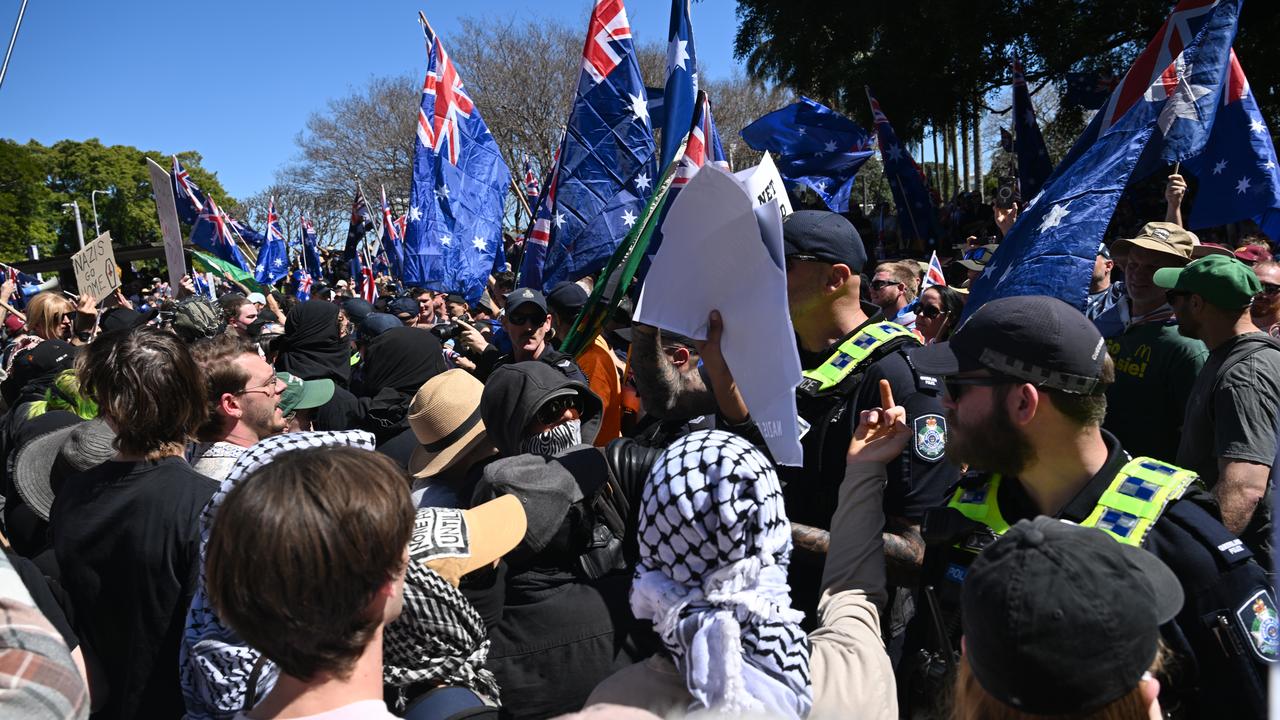
Far-right firebrand senator Pauline Hanson spoke to hundreds at a rally outside Parliament House in Canberra, calling for reduced migration and more Australian pride, as well as decrying Welcome to Country ceremonies and a “woke agenda” in schools.
More than 100 Canberran counter-protesters chanted “f**k off Nazis, f**k off”, “go home white trash” and “immigrants are welcome here” as people congregated at Commonwealth Park before marching to Parliament House.
Elijah Buol, chair of the Ethnic Communities Council of Queensland, said it was deeply concerning that people of migrant descent consider themselves “the sole custodians of Australian identity while at the same time rejecting the efforts to recognise First Nations (people)”.

Bluey wins top dog spot on kids’ Christmas wish list
Bluey, the Australian blue heeler puppy cartoon character is predicted to be the most sought-after toy in the UK this Christmas.
The Stg80 ($A165) Bluey celebration home mega bundle, based on the wildly popular Australian cartoon series, is tipped to be the number one bestseller this Christmas for pre-school-aged children, major British online retailer Argos said.
The list of the expected 20 best-selling toys this festive season also includes the Stg10 ($A20) Gui Gui single pack, a “blind box” packed with colourful, scented slime and collectable charms.

The retailer said toys that bring TV and movie characters to life will dominate this year’s list.
Aside from Bluey, the Stg65 ($A134) Gabby’s International Movie Dollhouse, for fans of the Netflix show about a girl who wears cat ears and is known for catchphrases such as “miaow-mazing”, “pawesome!”, “ab-so-cat-a-loutely” and “hug attack!”, is also expected to be a popular choice with a film release scheduled for October.